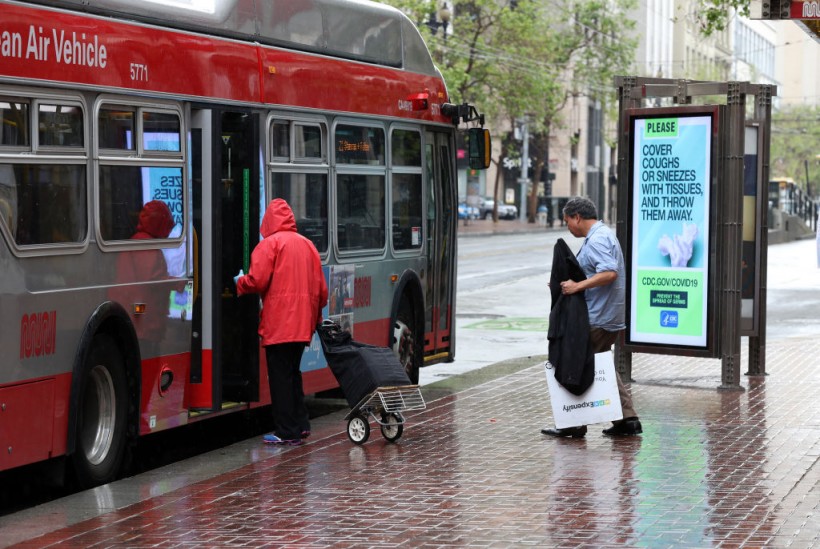Artificial intelligence will reportedly now be used by Los Angeles Metro Buses as a way to easily ticket vehicles that are illegally parked in bus lanes.
According to Metro, the program will be live by the end of 2024, following two months of community outreach to make sure the general public is informed about the goals, timeline, and effects of this new initiative. This summer is scheduled for testing.
According to the government, drivers will receive a 60-day warning period when cameras are placed. Warning citations are intended to be used as informative notices within the first sixty days and are not grounds for any violations.

(Photo: Justin Sullivan/Getty Images) San Francisco has introduced an autonomous shuttle service, marking another step in the city's exploration of self-driving vehicles for public transportation.
The initiative, created by the tech startup Hayden AI, aims to enhance bus schedules, boost ridership, and solve mobility issues. The company received approval from Metro's board of directors last year to put out 100 camera systems under a $11 million deal. The contract began in December and is anticipated to be in effect for around five years.
To aid in the enforcement of new parking regulations following the L.A. incident, cameras will be installed inside Metro buses' windshields to look for cars parked in bus lanes and at bus stops. Last year, the City Council authorized a fine.
Read Also: New Google Maps Features Will Assist Drivers in Finding EV Chargers' Locations
Buses with AI Cameras
According to Metro, about fifteen of the cameras are mounted on buses traveling on lines 212, which travels from Hollywood/Vine to Hawthorne/Lennox stations via La Brea Avenue, and line 720, which travels from Santa Monica to downtown Los Angeles via Wilshire Boulevard.
Additionally, some buses on lines 910, 950, and 70 from San Pedro, downtown Los Angeles, will have cameras installed
The chief growth officer of Hayden AI, Charles Territo, stated that while the AI-powered security cameras will continuously search for cars parked illegally, the system is designed to only record when a possible infraction is noticed.
Following an occurrence of a parking infraction, the L.A. Department of Transportation, where a representative will decide if a ticket needs to be issued.
AI in Public Transit
The Metro Buses in Los Angeles are not the first in the US to apply AI in public transportation; New York City recently initiated testing AI-based gun detection devices in its subway system.
Eric Adams, the mayor of New York City, declared last month that the city will begin testing a new system at subway turnstiles that uses artificial intelligence to identify weapons.
The decision was made in response to a recent incident at a subway station in Brooklyn where a patron was shot with his own revolver during an altercation.
The city's program entails a collaboration with Evolv, a Massachusetts-based business that specializes in weapon detection devices that are extensively used in public spaces and educational institutions around the country.
But Evolv has had to deal with criticism about the accuracy of its gadgets, as well as continuing government probes and a lawsuit from shareholders.
The New York City Police Department will comply with the POST Act's provisions as part of the pilot program, which is scheduled to start in ninety days.
Before introducing new technology, this legislation requires the department to publish impact and usage studies and to disclose the surveillance technologies it uses. The city intends to assess alternate vendors during the waiting period.
Related Article: NYC's AI Gun Detection System Faces Criticism Over Effectiveness, Accuracy
(Photo : Tech Times)






